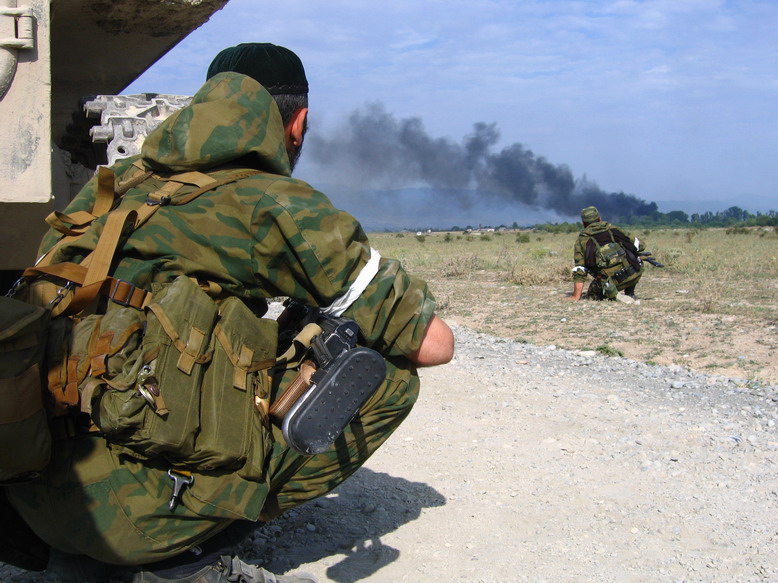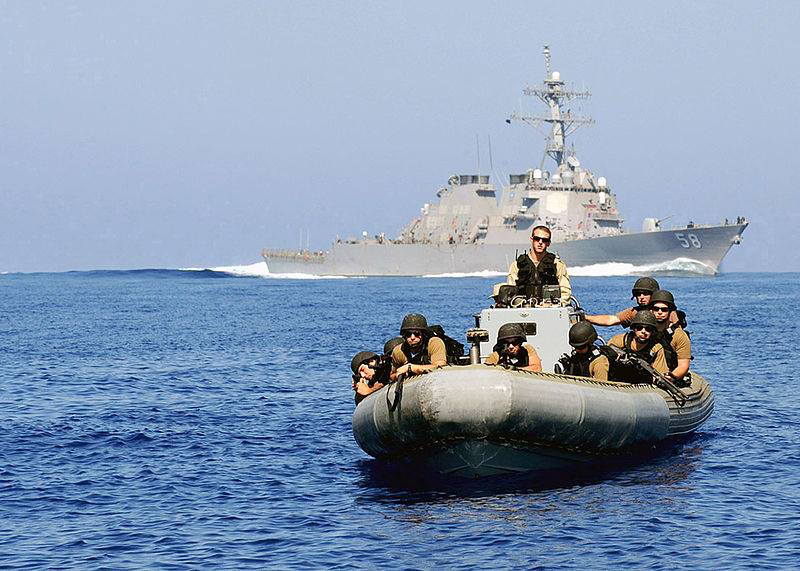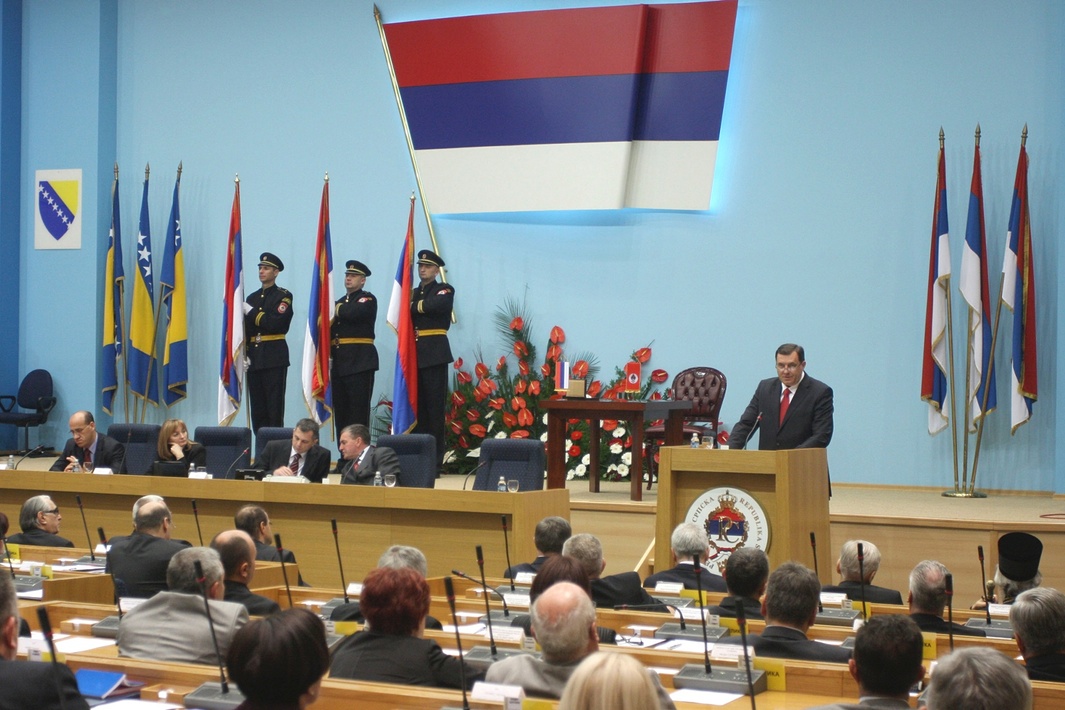ISIS numbers may be dwindling, however, recent attacks in Paris confirm its appealing publicity among recruits. This is particularly the case in impoverished regions of developing authoritarian states where secularism has been implemented with an iron hand, causing some regions of the world to become prone to terrorism growth.
The Caucasus, according to experts, may be next in line. The Turkish intelligence community recently announced a warning on the rise of ISIS recruits from the Caucasus region, crossing over to the country.
Washington and Moscow have long suspected that the Caucasus played a prominent role in providing the so-called Islamic State with fresh recruits, a fact that stood out sharply after the self-proclaimed caliphate saw a decrease in international volunteers early this year.
The Caucasus is a complex, convoluted, fragile region. Its mountain range serves as a geopolitical fault line between two opposing multinational projects, with NATO and Turkey in the Southeast, and the Russian-led Eurasian Union in the Northwest.
The International Crisis Group estimates roughly 1/3 of new ISIS recruits stem from the North Caucasus, more specifically Chechnya and Dagestan. Chechen fighters are especially renowned in Syria for their fierceness, and they tend to climb up ISIS ranks with ease. Unlike most ISIS foot soldiers, Chechen jihadists also have a habit of posting videos of themselves chanting religious poems on the battlefield. There is far more to it than sheer fanaticism, according to the Crisis Group, which points back to the situation back home, blaming the “often unaccountable and non-transparent governance, poor socioeconomic conditions and a deep sense of injustice and disenfranchisement.”
Lack of social mobility is a direct link to radicalization, tying together isolated shootings like the recent Orlando massacre, the Bastille Day attack in Nice on July 14, 2016, and the rising ISIS popularity in the West. Chechen President Ramzan Kadyrov, since taking power in 2007, has effectively transformed the region into a feudal regime, where dissent is met with violent repression. Chechnya’s staggering authoritarianism is also paired with great levels of corruption and cronyism. As a result, unemployment stands at 29%, with many disaffected residents turning to the sole political alternative available: Radical Islam.
Neighbouring Dagestan faces worse problems. Alexander Bortnikov, Director of the Federal Security Service and Chairman of the Russian National Anti-Terrorist, reckoned 120 of the 144 terrorist acts in the North Caucasus occurred in the Russian province. With a forbidding topography, this largely mountainous region is also home to the greatest number of ethnicities in Russia. The Capital, Makhachkala, is considered to be the most corrupt administration of the Russian Federation.
Regional Implications
Aware of the challenge, the United States has directed its attention recently to building anti-terror capacity in Georgia, its foremost partner in the region. US-Georgian relations are expected to grow, particularly in light of the recent fallout with Turkey, after the US government criticized Erdogan for using the coup as a pretext to clamp down on the opposition. With more than 7,000 people arrested, the Turkish government seems to be headed towards a more authoritarian path.
Turkey’s current fallout with NATO faces a multi-level challenge. First, Washington cannot afford to lose one of its longest standing allies in the Middle East, especially not to Russia. The Ataturk Airport suicide bombing on June 28, 2016, initiated a warming up of Turkish-Russian relations, as Russia saw opportunities for engagement in the common cause against extremism. Following the attack, Russia provided public support for Erdogan during the coup, leading many to fear a Turkish shift towards Russia, which could have devastating consequences for NATO’s legitimacy.
Second, Turkey’s repressive developments imply a growing gap between the government and its people, a danger that can easily lead to civil unrest and, indirectly, more ISIS recruits. The current ruling AK party has ruled out several liberal accomplishments, and reportedly showed a dangerously ambiguous relation with the Islamic State. The prominence of an Islamist Turkish state would encourage actors to join forces, and effectively strengthen the so-called Islamic State’s position along the Turkish border.
Both Russia and the United States have vested interests in defeating the Islamic State, yet both are unevenly responsible for its rise. The dismissal of the entire Iraqi army, back in 2003, created a vast pool of dissatisfied, yet privileged actors with military expertise who would eventually become top ISIS leaders. Even before that, the formation of Islamic maquis in Afghanistan to fight the Soviet Union provided fertile conditions for the emergence of Al-Qaeda. Russia, in turn, has been accused of encouraging the outflow of extremists to the Middle East both to infiltrate them and to pacify the region.
This proxy war, in a politically vulnerable Caucasus, bears a perpetual risk of awakening the region’s dormant conflicts. It would be beneficial for policy leaders and experts to watch for signs of additional violence occurring from the unresolved Nagorno-Karabakh conflict, and to push their efforts towards inter-regional cooperative efforts.
Photo: “Battalion Vostok in South Ossetia” (2008), by Yana Amelina via Wikipedia. Licensed under CC BY-SA 3.0.
Disclaimer: Any views or opinions expressed in articles are solely those of the authors and do not necessarily represent the views of the NATO Association of Canada.




